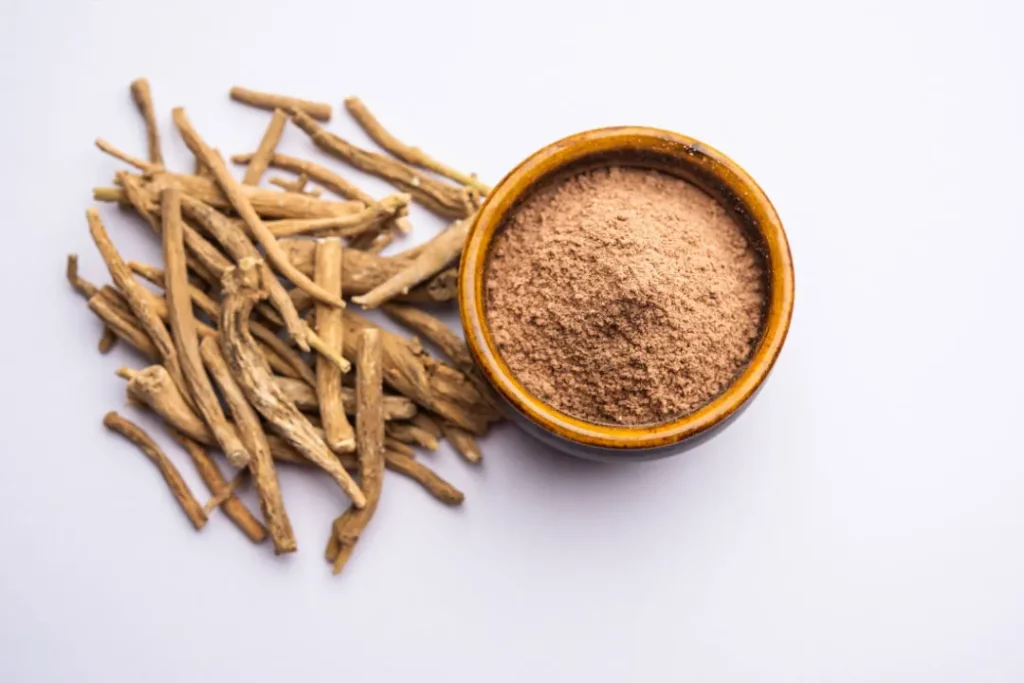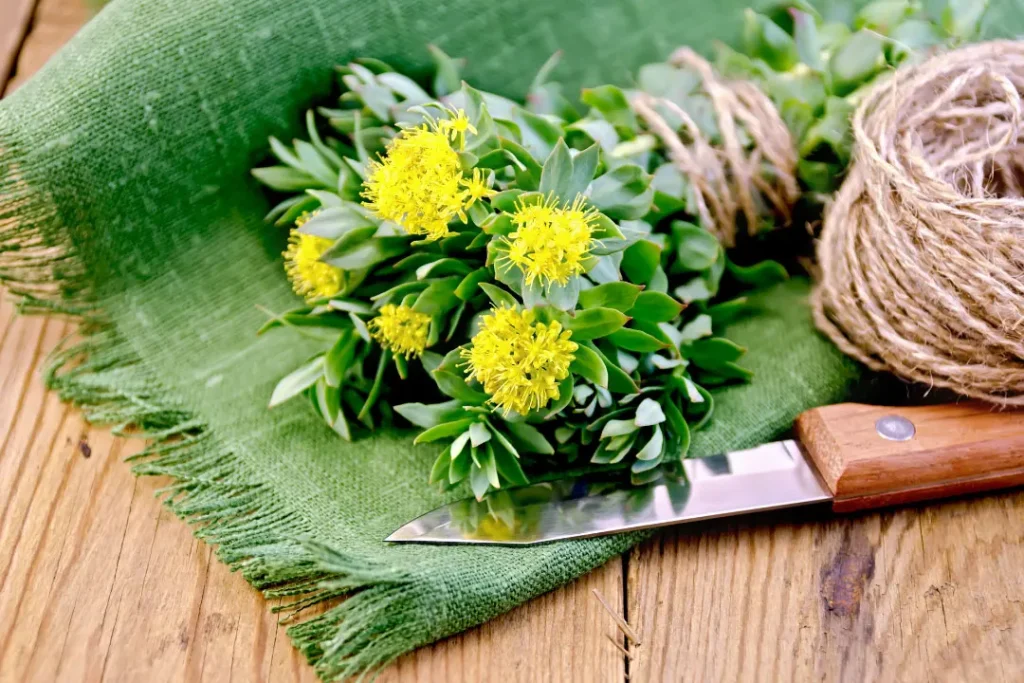The best nootropic herbs can help you to achieve sustained energy, focus, and maximum productivity. We’ll discuss five high-quality supplement ingredients and show you where to find them.
Nootropic isn’t your average medical term, but there’s a good chance you’ve taken something classified as one. The term was first used by Romanian neuroscientist Corneliu Giurgea, referring to nootropics as substances used to enhance memory or other cognitive functions, like creativity or alertness. For example, caffeine is a nootropic that naturally occurs in coffee, tea, and some chocolates. People with ADHD (attention deficit hyperactivity disorder) might take Adderall or Ritalin to help with their symptoms. Due to their impact on cognition, these “smart drugs” also fall under the nootropic umbrella.
Caffeine and other supplements can sometimes have unwelcome side effects, like jitteriness and increased heartbeat, or insomnia and reduced appetite, respectively. Nootropic herbs can offer similar positive effects to classic nootropics without the usual side effects. Research indicates that side effects from these herbs don’t often occur, and if they do, they’re typically mild. Read on to learn more about the nootropic herbs that nature has to offer. Be sure to check in with your doctor before taking these supplements, as some may interact negatively with certain medications.
You May Also Like:
Onnit Alpha Brain vs Evolvere’s QUANTUMiND Classic
5 Great Ingredients to Boost Your Brain Power Without Nootropics Side Effects
The best nootropic herbs:
Chinese club moss
Chinese club moss, also known as Huperzia serrata or Qian Ceng Ta, is native to eastern Asia and doesn’t grow like moss at all. It grows in rigid upward shoots that resemble fir trees in look and texture. The secret to this nootropic herb is a substance called Huperzine A, which may improve memory and general brain function.
Chinese club moss has been used to treat Alzheimer’s disease and other memory disorders. Some use it to reduce pain, fever, and inflammation, as well as to mitigate blood loss and menstrual cramps. However, additional studies are needed to validate these claims.
The best nootropic herbs:
Ginkgo biloba
The ginkgo biloba is one of the oldest living tree species in the world, sometimes referred to as a living fossil. The trees can grow over 100 feet tall and commonly live for over 1,000 years. Famously, it was one of the few living beings to survive the atomic bombings in Japan during World War II. The extract from ginkgo leaves can help with blood disorders, memory, and general cognition. Additionally, ginkgo extract may support eye health and heart function, making it a powerful nootropic herb.
Some studies suggest it can help treat dementia by improving thinking and memory, social behavior, and ability to perform basic tasks. Researchers believe this is because the extract promotes blood circulation in the brain, thanks to powerful antioxidants found in the leaves.
It’s important to note that you should not eat raw or roasted ginkgo seeds or leaves, as they can be poisonous. Ginkgo biloba may also interact with a variety of medicines, including blood thinners and antidepressants.

The best nootropic herbs:
Ashwagandha
Ashwagandha is an herb that grows in the Indian peninsula, the Middle East, and some parts of Africa. Its name comes from the many languages in India, literally meaning ‘smell of the horse.’ Most people use ashwagandha for help with anxiety, stress, depression, and energy levels, but some research suggests it may also provide pain relief, improve heart health, and support cognitive functions, making this a well-rounded nootropic herb.
Some clinical studies suggest it can help improve cognitive functioning, namely executive functioning, attention span, reaction time, and memory. Some chemical compounds found in the herb are associated with antioxidant effects, which may positively impact the brain and general cognitive health.

The best nootropic herbs:
Rhodiola rosea
Rhodiola (Rhodiola rosea) is a flowering nootropic herb that grows in the cold, mountainous regions of Europe and Asia. It’s considered an adaptogen, meaning it has properties that are believed to stimulate the body’s resistance to physical, environmental, emotional, and mental stress.
Rhodiola is most commonly used to treat symptoms of fatigue, anxiety, and depression. Historically, Rhodiola was used to increase endurance and work performance in Russia and parts of Scandinavia. Research indicates the herb may help to improve memory and learning, as well as general cognition, although most of these studies used animal subjects.
Some studies suggest it may improve athleticism and help with managing diabetes. Furthermore, animal studies suggest Rhodiola may have anticancer properties, inhibiting the growth of various cancer cells. However, further research is needed.

The best nootropic herbs:
Bacopa monnieri
Bacopa monnieri is a staple herb in Ayurvedic medicine, also called Brahmi, water hyssop, and herb of grace. Traditionally, people have used Bacopa monnieri for improving memory and brain function. Additionally, it may help to reduce anxiety.
Its secret ingredient is its antioxidants. The active compound in the herb, bacosides, can neutralize harmful molecules in the body known as free radicals. The damage caused by free radicals is associated with several diseases, including heart disease, Alzheimer’s, and certain cancers. The nootropic herb also has anti-inflammatory properties, meaning it can help to fight disease and promote healing.
A few studies using adult subjects found that taking Bacopa monnieri daily improved their comprehension and processing speed, as well as their memory and attention span.

Using nootropic herbs
These nootropic herbs offer many potential benefits. Using a combination of the herbs highlighted above may provide a substantial boost to your energy, focus, and productivity. However, taking multiple supplements for each herb can become inconvenient. Fortunately, myPEAK Supplements offers an easy way to take four of the five herbs listed above through its standout product, myPEAK Brilliance.
myPEAK Brilliance capsules contain 12 ingredients, including the four herbs listed in this article. Many of the additional ingredients are also nootropic herbs, providing further benefits to the consumer’s focus and cognitive performance. For example, the supplement includes theanine, an amino acid found in most teas that provides a calming, focus-increasing effect. myPEAK Brilliance is formulated to promote sustained 8-hour energy, peak cognitive performance, improved focus and memory, and elevated productivity.
While more research is necessary concerning nootropic herbs, public interest is growing as more and more people opt for herbal supplements and natural ways to boost their health. To learn more, be sure to check out the links below.
Further reading:
LiveScience: Do nootropics and brain boosters work, and are they safe?
Mayo Clinic: Caffeine: How much is too much?
National Center for Biotechnology Information: Nootropics as Cognitive Enhancers: Types, Dosage, and Side Effects of Smart Drugs
Memorial Sloan Kettering: Huperzia serrata
RxList: Chinese club moss
Mayo Clinic: Ginkgo
Medical News Today: What are the benefits of ashwagandha?
WebMD: Rhodiola – Uses, Side Effects, And More
Healthline: 7 Emerging Benefits of Bacopa monnieri (Brahmi)
Important Note: The information contained in this article is for general informational purposes only, and should not be construed as health or medical advice, nor is it intended to diagnose, prevent, treat, or cure any disease or health condition. Before embarking on any diet, fitness regimen, or program of nutritional supplementation, it is advisable to consult your healthcare professional in order to determine its safety and probable efficacy in terms of your individual state of health.
Regarding Nutritional Supplements Or Other Non-Prescription Health Products: If any nutritional supplements or other non-prescription health products are mentioned in the foregoing article, any claims or statements made about them have not been evaluated by the U.S. Food and Drug Administration, and such nutritional supplements or other health products are not intended to diagnose, treat, cure, or prevent any disease.


